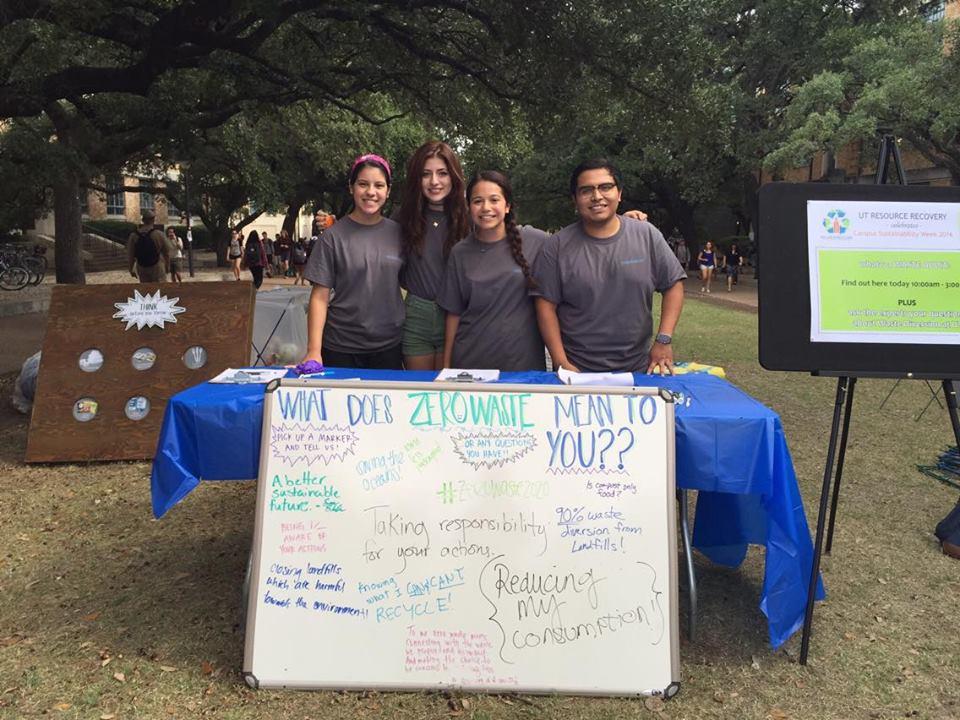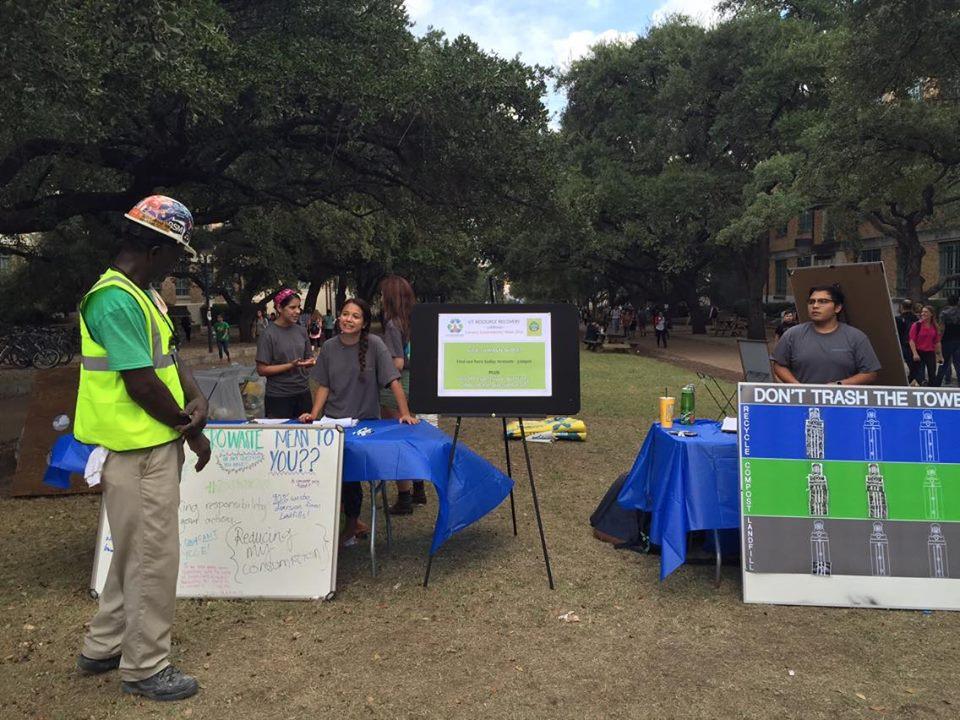Volunteers from the Campus Environment Center have a table set up in the East Mall on campus.
A pile of trash bags lined campus’ east mall as Campus Environmental Center members emptied the contents to see what could be recycled and composted. This was all part of a trash audit aimed for implementing the organization’s new Zero Waste Initiative.
Story by Danielle Ortiz
Photos by Jacqueline Ramos
What is this initiative and how does it differ from what we have now?
According to the center, each year six-thousand tons of materials go into the University of Texas at Austin’s waste system. Currently, 59 percent of our trash is diverted, meaning it is recycled, composted or repurposed.
“The Zero Waste initiative is our goal to divert trash from campus waste to 90 percent by 2020,” student volunteer Emily Lopez says. “We want to redirect trash into more effective uses.”
The audit was held as part of Campus Sustainability Week, which started on Oct. 22 and ends on Sunday. During the week, the organization puts together a series of events like a campus clean-up and a Trash to Treasure yard sale. CEC’s goal is to identify the trash that is being disposed of by students that could either be recycled or composed of in the future.
“The point of the audit is to see what is thrown in the trash and what decisions people are making while they are throwing things away,” Zero Waste program coordinator Lindsey Hutchison says. “This gives us ideas on how we can improve making it easier for them. Sometimes students just don’t know if something is recyclable, trash or compost and we need better signage.”
Volunteers help explain what the Zero Waste initiative is all about.
With this information, CEC has a better idea of what will work more effectively on campus. Currently, the Environmental Center’s Resource Recovery team is working with the Union and the Student Activity Center to make all the packaging from food vendors compostable. This uniform packaging will make it easier for students to know how to dispose of waste properly. It will also help the organization to divert the waste that is produced to reach their 90 percent goal.
“We have been working with [the unions] for several years now, but it is challenging with the changing contracts of vendors,” Hutchison says. “The sooner we can do it, the sooner we can have the impact.”
What is next for the initiative? There are more trash cans than recycling bins on campus. Reducing the campus’ current trash can count of 254 to 89 and pairing these with recycling bins across high-traffic areas on campus will allow students an easy opportunity in choosing to recycle.
“I definitely think putting the bins together makes recycling more convenient and will help me think twice,” UT first year representative Maher Rahman says. “I’m just worried that other people will still ignore it and put trash into the recycling bins.”
This may pose a difficulty for the initiative, but the group hopes to spread awareness and knowledge to students. The trash audit held on east mall also had demonstrations to teach students about what common items are mistaken for recyclable based on previous audits such as chip bags, styrofoam and paper coffee cups.
“If people can learn to value the easiness of composting and recycling and even thinking before they throw something away, then that can really make a difference,” Hutchison says.













































